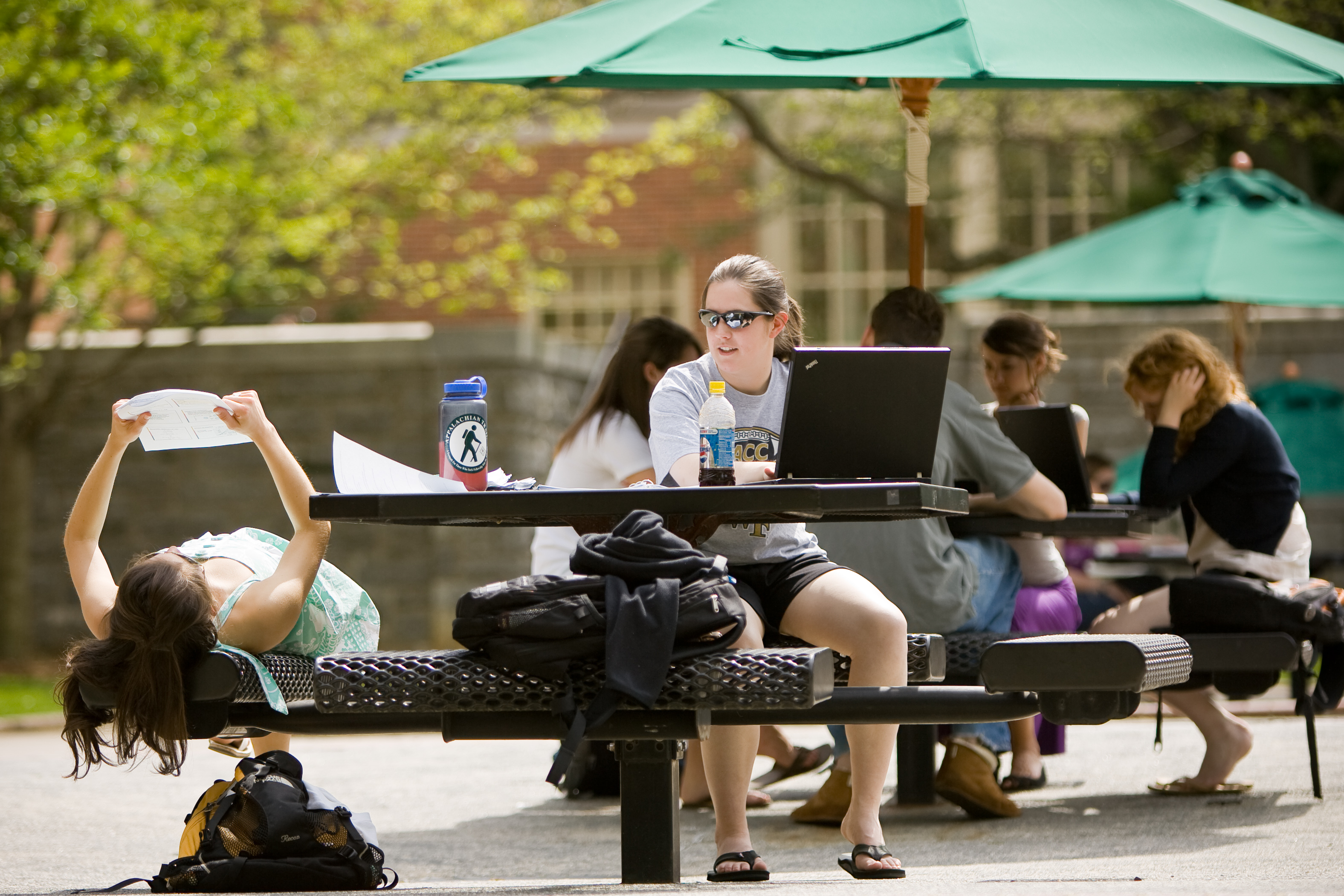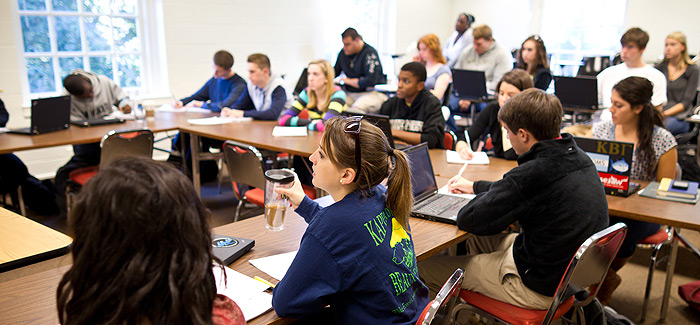Adjusting to the academic workload
This week’s message discusses adjusting to the academic workload – and utilizing our many campus resources.
In college, each class has a syllabus that shows all assignments, papers, tests, and expectations for things like attendance. It’s important for your students to read their syllabi completely to understand what is expected of them.
Your students will quickly realize the volume of college work is much greater – maybe reading a whole English novel or lengthy chapters of science texts in the course of just a few days. Your student may feel that in the first few weeks of college level math or chemistry, they’ve covered what took their high school teacher an entire year to teach. That can be unnerving.
Unlike high school, where students were in class from 8 or 9 a.m. to 2 or 3 p.m. with no break, college schedules are different. Some days your Deac might have only 1 or 2 classes – or none at all. That leaves a lot of free time – and college is filled with fun distractions and temptations that they must balance with their academic work.
Those who plan their activities – whether it is by using a paper calendar system/planner, phone calendar reminders, Google calendar or spreadsheet, etc. – tend to fare better and procrastinate less than students without a time management plan.
An important task for students in the first several weeks of school is to figure out the best way to manage their new academic workload. They need to discern when and where they do their best studying and homework – is it right after class? in the morning? at night? in their room? outdoors? in the ZSR Library? What surroundings offer optimal concentration and minimal distractions? Those answers will be different for each student.
Families, please know that it is common for students to be nervous about the pace of the work, the expectations of the professors, and whether their schedule is going to be well-suited to their strengths. The first weeks of the semester can be an anxious time as students adjust to the “new normal.”
 If your student seems nervous, one of the best bits of advice you can offer your student is to take their academic temperature early and often. They can ask themselves “Do I understand the course material? Am I getting it? Am I keeping up in class?” And if the answer to any of those questions is “no,” then the student needs to take control of the situation and get assistance. Happily, we have abundant support resources!
If your student seems nervous, one of the best bits of advice you can offer your student is to take their academic temperature early and often. They can ask themselves “Do I understand the course material? Am I getting it? Am I keeping up in class?” And if the answer to any of those questions is “no,” then the student needs to take control of the situation and get assistance. Happily, we have abundant support resources!
 The first step should always be the student going to their professor’s office hours (time set aside each week when the professor will be available to meet with students) to go over course material and ask deeper questions.
The first step should always be the student going to their professor’s office hours (time set aside each week when the professor will be available to meet with students) to go over course material and ask deeper questions.
Students can also go to the Center for Learning, Access and Student Success (CLASS) for free peer tutoring and/or academic coaching. We also have free specialty academic assistance offices: the Computer Science Center, Writing Center, Math and Stats Center, and Chemistry Center.
Resources are abundant. Encourage your Deac to use the full range of options if they need academic support.
